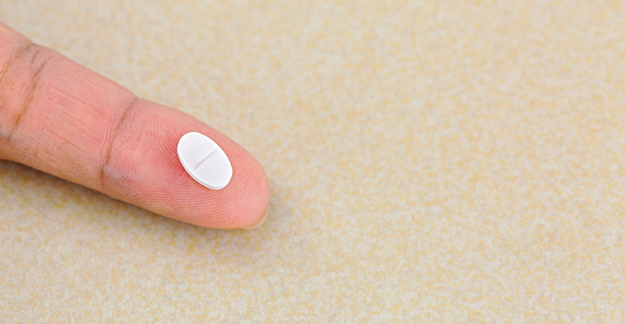As physicians, we are experts at prescribing medications. However, we often fail miserably when it comes to recognizing adverse reactions and tapering medications. It’s something that is simply lacking in our medical training. I have become a victim of this with benzodiazepines, as I detailed in a prior blog post. Benzodiazepines, in particular, are very difficult drugs to taper. I would like to share with you some of the wisdom I’ve gained in the process, so here are 10 tips for helping your patient survive benzodiazepine withdrawal.
Disclaimer: I will be addressing patients physiologically dependent on benzodiazepines who are motivated to come off the drug and do not display signs of abuse or addiction.
1. Believe your patient. Often symptoms of tolerance and/or withdrawal can result in the patient being branded a drug-seeker when this is far from the truth. As physicians, we become jaded, but not everyone is an addict looking for a fix. If your patient has been taking their medication as prescribed, please recognize that physiologic dependence and benzodiazepine withdrawal syndrome are real and can present with a host of symptoms. A little validation of their condition goes a long way toward alleviating the patient’s suffering.
2. Taper, taper, taper. Please don’t “cold turkey” or send your benzodiazepine-dependent patient to detox. Just don’t do it. A certain percentage will be fine, but some will suffer a horrific and debilitating withdrawal syndrome that can last years. I have many friends who have suffered brutal symptoms for 5 years or more after an abrupt cessation. A sensible taper could have prevented this needless suffering. Please don’t play Russian roulette with your patients.
3. Consider switching to a long half-life benzodiazepine. Short half-life benzodiazepines such as Xanax and Ativan can be difficult to taper due to withdrawal symptoms between scheduled doses. A long-acting benzodiazepine such as Valium alleviates this issue. Valium is also lower potency, meaning it’s easier to make smaller dosage reductions. Of course, if your patient is able to taper directly from their current benzodiazepine, this is the simplest course of action.
4. Patient-controlled, symptom-based tapers are best. The process takes as long as it takes, and the key is for the symptoms to remain tolerable by giving patients control of their taper speed. There is no one “right way” to taper, but there are multiple options available. In the end, each patient will need to find their own way out with your excellent supervision, guidance and support.
5. Adjunctive medications are not necessary, but may be helpful in some cases. Unfortunately, the literature is sparse and often anecdotal at best. Very small studies and case reports have shown that drugs such as Neurontin (gabapentin), carbamazepine and propranolol may help as aids in withdrawal. Trazodone, mirtazapine and Seroquel (quetiapine) may be helpful in some for insomnia. Some patients have reported relief of withdrawal symptoms with the use of CBD oil or medical marijuana. However, not everyone finds adjunctive medication helpful. Depending on the medication, it must often be tapered as well, and carries the potential of its own discontinuation syndrome.
6. Encourage coping skills. These are much needed as the symptoms of withdrawal can be overwhelming. Distraction, meditation/relaxation techniques, taking a hot bath, leaving the house for a short outing and going for a walk can be helpful. Some days are so bad that coping skills provide minimal help. On those days the patient must learn to survive, one minute at a time, telling themselves they will get through this round of symptoms because they have survived it before.
7. Encourage acceptance. Tapering and withdrawal can be a long process. One of my friends who tapered before me shared his doctor’s words of wisdom, to “get comfortable being uncomfortable” and “learn not to fear the symptoms.” Acceptance isn’t easy. It takes a lot of effort and continued practice, but it is key to surviving this process and ultimately having a successful taper.
8. Adequate psychosocial support is extremely helpful during benzodiazepine withdrawal. I know many who are going through this process alone, and I have no idea how they do it. Having family and/or friends who can provide help with daily tasks, understanding of the symptoms and emotional support is very important in this process. Please take time to educate family members about benzodiazepine withdrawal and how they can help their loved one through this difficult season in their life.
9. Do not fear the internet. Yes, we all hate “Dr. Google,” but in the case of benzodiazepines, he saved my life. Just spending a little time on the internet, I was able to figure out why I was so ill when many doctors could not. Benzodiazepine withdrawal syndrome is often under-recognized and poorly understood, so when a patient comes to you with information about it they have obtained online, please don’t be arrogant. Take the time to read and listen. It could potentially save a life. In addition, online support groups such as BenzoBuddies and Facebook groups such as Benzodiazepine Recovery were invaluable resources for me in the beginning of my taper.
Through these groups, I made many friends all over the world who understand what I’m going through when nobody else can. With that being said, the forums can be depressing and overwhelming, so patients should use caution in the amount of time they spend on them. Now that I’m further along in my taper, I have developed a core group of friends that I can call or text, and I have less need for the forums.
10. Most importantly, provide reassurance. Let your patient know you will support them through this process, no matter how long it takes, and that they will improve with time.
This article was orignally published on KevinMD.com. Copyright © KevinMD, LLC 2018. Reprinted with permission.
By Christy Huff, MD
KevinMD.org






